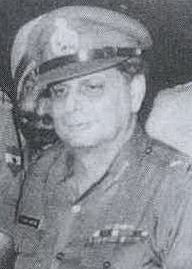The Lord Weidenfeld, Baron of Chelsea
Arthur George Weidenfeld (1919-2016) was born in Vienna. When Germany annexed Austria in 1938, Weidenfeld fled to London with the help of a Christian family. He started working for the BBC, and several years later became a political commentator and writer. In 1948, he co-founded a publishing company with Nigel Nicolson. Their most famous publication was Nabokov’s Lolita. By 1985, their company was large enough to acquire the American publisher Grove Press. In turn, they were bought out in 1991 by Orion Publishing. Weidenfeld continued to write throughout the years, in both English and German (all in all, he knew 7 languages). Meanwhile, he played a key role in both the Jewish community and in the world of philanthropy at large. Wishing to repay his debt to the Christian family that helped him escape the Nazis, Weidenfeld started a campaign to rescue 20,000 Christians victimized by the Syrian Civil War. The first flight of 150 Christian refugees landed in Poland last summer through the Weidenfeld Safe Havens Fund, which also provided them with over a year’s worth of financial support. On the side, Weidenfeld served as a political adviser to many leaders, including former British prime minister Tony Blair, and was a frequent guest of Pope John Paul II. Back in 1949, he was Chief of Cabinet for Israel’s first president, Chaim Weizmann. In Israel, he chaired both Ben Gurion University and the Weizmann Institute. Weidenfeld was knighted in 1969, and later made Baron Weidenfeld of Chelsea, earning a seat on the House of Lords, where he often participated in debate. Sadly, Weidenfeld passed away last week, and was laid to rest in Jerusalem.
Words of the Week
Trials are medicines which our gracious and wise Physician gives because we need them; and the proportions, the frequency, and weight of them, to what the case requires. Let us trust His skill and thank Him for the prescription.
– Isaac Newton



